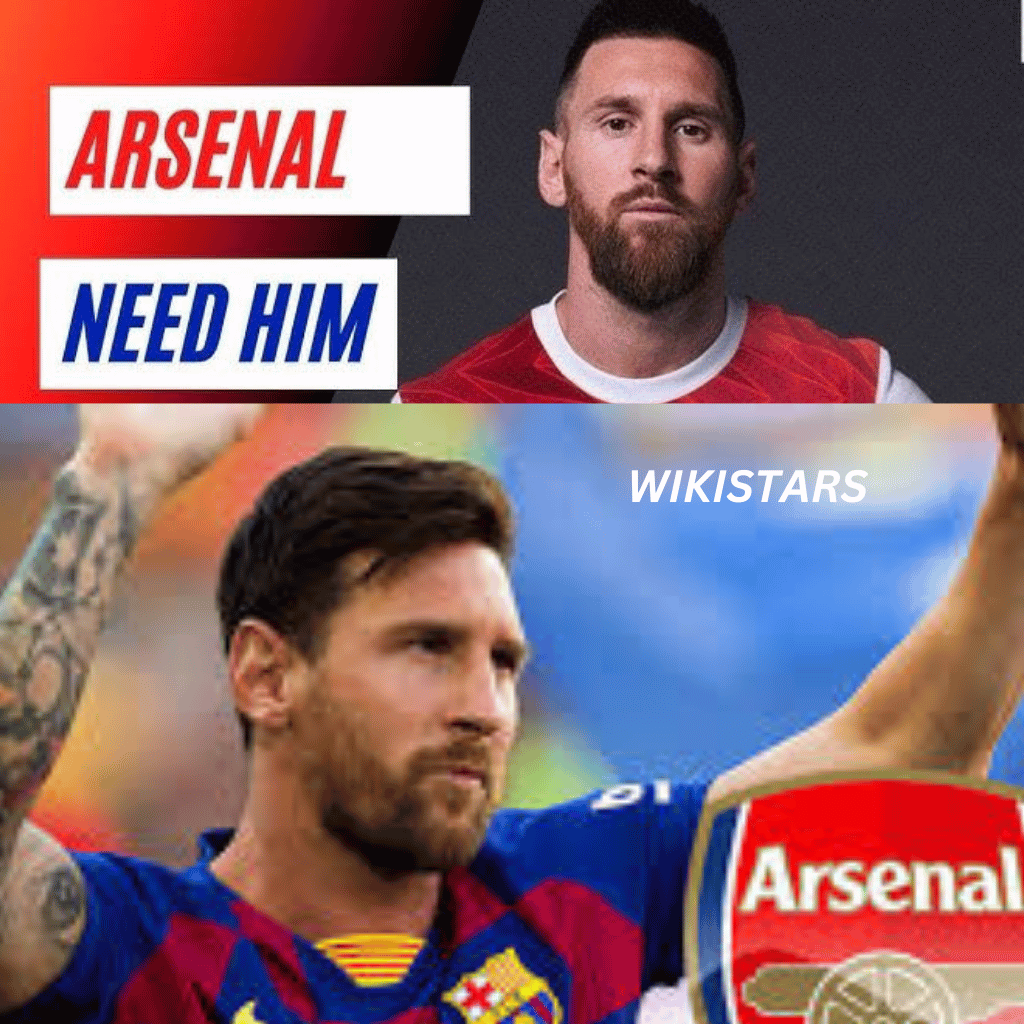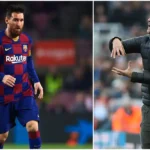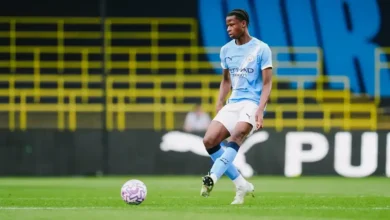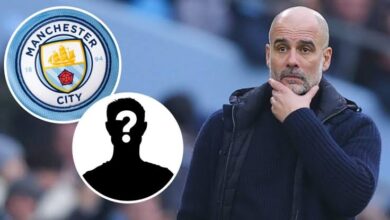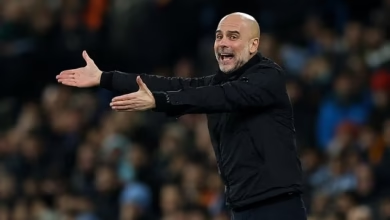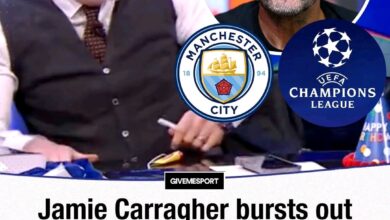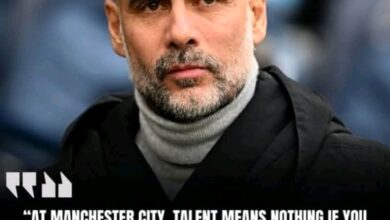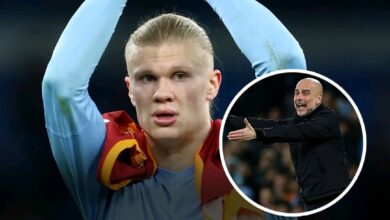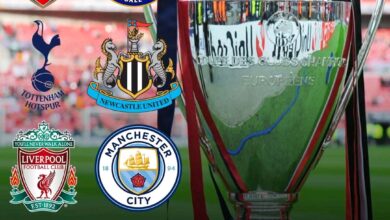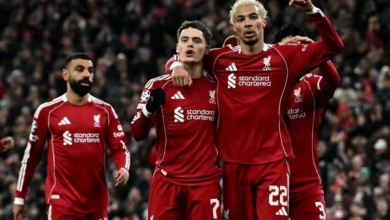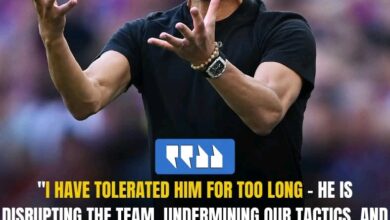Lionel Messi’s Inter Miami teammate rejected chance to join Pep Guardiola at Manchester City
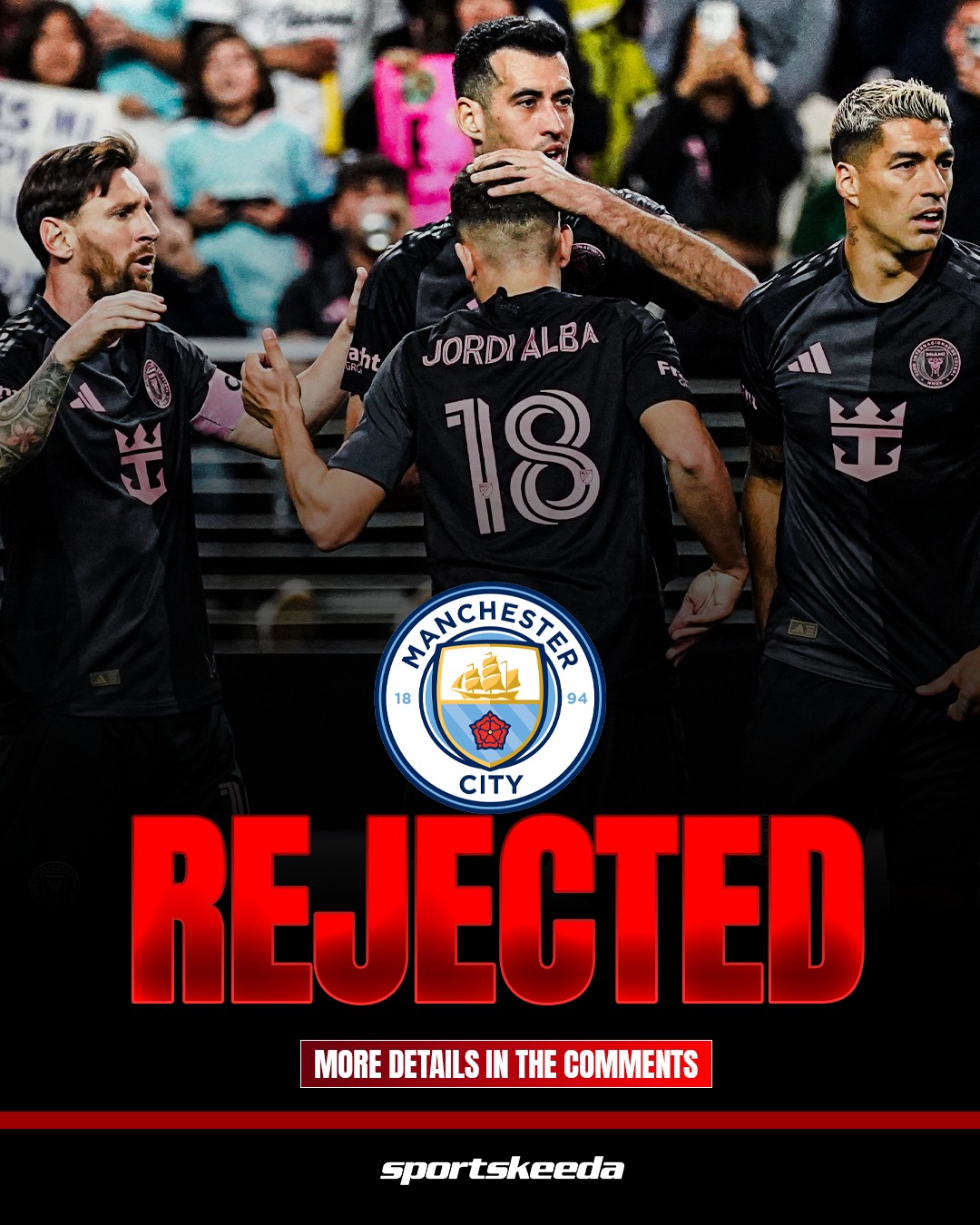
Yet, even as Busquets approaches the twilight of his career in the sun-drenched fields of Florida, the Spanish midfielder continues to find himself at the center of football’s most compelling narratives. The latest chapter in this ongoing saga involves a phone call that could have changed the trajectory of both his career and Manchester City’s season – a conversation with his former mentor, Pep Guardiola, that ultimately revealed the depth of Busquets’ commitment to his new American adventure.
The Architect of Barcelona’s Golden Era
To understand the magnitude of Guardiola’s recent overture to Busquets, one must first appreciate the extraordinary relationship these two men forged during Barcelona’s most dominant period. Under Guardiola’s revolutionary stewardship from 2008 to 2012, Busquets evolved from a promising academy graduate into the fulcrum around which one of history’s greatest football teams operated.
The Spanish defensive midfielder became the embodiment of Guardiola’s footballing philosophy – a player who could dictate tempo without dominating possession statistics, who could break up opposition attacks with the precision of a surgeon, and who possessed the vision to launch counter-attacks with a single, perfectly weighted pass. While Lionel Messi dazzled with his individual brilliance and Xavi and Andrés Iniesta orchestrated the midfield symphony, it was Busquets who provided the foundation upon which Barcelona’s tiki-taka revolution was built.
During those golden years, Busquets collected an astonishing array of honors: multiple Champions League titles, La Liga championships, Copa del Rey victories, and Club World Cup triumphs. More importantly, he became the prototype for the modern defensive midfielder – a player whose influence extended far beyond the conventional metrics of tackles and interceptions. His ability to read the game, position himself perfectly, and distribute the ball with metronomic accuracy made him indispensable to both club and country.
Spain’s International Dominance
Busquets’ influence extended seamlessly from club to international football, where he became a cornerstone of Spain’s unprecedented period of dominance. The midfielder was instrumental in La Roja’s historic treble of major tournament victories: the 2008 European Championship, the 2010 World Cup, and the 2012 European Championship. This golden generation of Spanish football, featuring the likes of Iniesta, Xavi, David Villa, and Iker Casillas, revolutionized international football with their possession-based approach and technical superiority.
The 2010 World Cup in South Africa stands as perhaps the pinnacle of Busquets’ international career. Playing in the heart of Spain’s midfield alongside his Barcelona teammates, he provided the defensive stability that allowed the more creative players to flourish. His performance in the final against the Netherlands was a masterclass in positional discipline and ball retention, helping Spain secure their first and only World Cup triumph.
Throughout his international career, which spanned over a decade and included more than 140 caps, Busquets remained a consistent presence in Spain’s starting eleven. His ability to adapt his game to different tactical systems and partner with various midfield combinations made him invaluable to successive Spanish coaches. Even as the golden generation gradually gave way to new talents, Busquets continued to anchor Spain’s midfield well into the 2020s.
The MLS Adventure Begins
After spending the entirety of his European career at Barcelona, accumulating over 700 appearances for the Catalan giants, Busquets made the surprising decision to join Inter Miami in Major League Soccer. The move, announced in 2023, represented more than just a change of scenery – it was a reunion with some of the most important figures from his career.
The presence of Lionel Messi at Inter Miami undoubtedly played a significant role in Busquets’ decision to cross the Atlantic. The two players had shared countless memorable moments during their time together at Barcelona, developing an almost telepathic understanding on the pitch. Their partnership had been one of the key components of Barcelona’s success under multiple coaches, with Busquets often serving as the first link in attacking sequences that would culminate in Messi magic.
Jordi Alba, another former Barcelona teammate, also made the transition to Inter Miami, creating a nucleus of players who had achieved the highest levels of success together in European football. This familiarity factor cannot be understated – these players understood each other’s movements, preferences, and decision-making processes in a way that only comes from years of playing together at the highest level.
The appointment of Javier Mascherano as head coach added another layer of familiarity to the project. Mascherano, himself a former Barcelona defensive midfielder and Argentine international, brought tactical acumen and understanding of how to maximize the talents of experienced players in the later stages of their careers. His recent comments about Busquets being key to Inter Miami’s future plans underscore the continuing importance of the Spanish midfielder to the team’s ambitions.
Manchester City’s Midfield Crisis
The context for Guardiola’s approach to Busquets becomes clearer when examining Manchester City’s struggles during the 2024-25 season. The reigning Premier League champions had built their recent dominance around the exceptional talents of Rodri, the Spanish midfielder who had evolved into arguably the world’s best defensive midfielder.
Rodri’s importance to Manchester City’s system cannot be overstated. The 28-year-old had become the metronome of Guardiola’s orchestra, providing the perfect balance between defensive solidity and creative distribution. His ability to control the tempo of matches, break up opposition attacks, and launch City’s intricate passing sequences made him virtually irreplaceable in Guardiola’s tactical setup.
The Ballon d’Or winner’s ACL injury at the beginning of the season sent shockwaves through the City camp. Rodri had been in sublime form, fresh off helping Spain win the European Championship and being recognized as the world’s best player. His injury represented more than just the loss of a key player – it threatened to undermine the entire tactical foundation upon which City’s success had been built.
The statistics tell the story of City’s decline without their Spanish anchor. From being odds-on favorites to win their fifth consecutive Premier League title, City found themselves struggling to maintain their previous standards. The team that had dominated English football with ruthless efficiency suddenly looked vulnerable, particularly in the midfield areas where Rodri’s absence was most acutely felt.
Sitting fourth in the Premier League table, Manchester City’s title defense was in serious jeopardy. The gap between them and the league leaders had grown to a concerning margin, and their performances lacked the control and precision that had become their trademark under Guardiola. The Catalan coach needed a solution, and he needed it quickly.
The Phone Call That Changed Nothing (And Everything)
It was in this context of desperation and need that Guardiola reached out to his former protégé. The phone call between the two men represented a convergence of personal history, tactical necessity, and career crossroads that rarely occurs in modern football.
According to reports from Sport, Guardiola’s approach was direct and compelling. He needed someone who could step into Rodri’s role and provide the tactical discipline and game management that had been missing from City’s performances. In Busquets, he saw not just a former player but someone who understood his tactical philosophy better than almost anyone else in world football.
The proposal was enticing from multiple perspectives. For Busquets, it represented an opportunity to return to the highest level of European competition, to work once again with the coach who had shaped his development, and to potentially add to his already impressive trophy collection. Manchester City, despite their current struggles, remained one of the most prestigious clubs in world football, with resources and ambitions that matched any team in Europe.
The financial incentives would undoubtedly have been substantial. Premier League clubs, particularly those of Manchester City’s stature, possess the resources to make offers that are difficult to refuse. For a player in the latter stages of his career, such an opportunity might have represented one final chance to secure generational wealth while competing for the sport’s biggest prizes.
From a tactical standpoint, the fit seemed almost perfect. Busquets possessed exactly the skill set that Guardiola needed: intelligent positioning, excellent passing range, tactical discipline, and the experience to manage games at the highest level. His understanding of Guardiola’s systems would have minimized the adaptation period typically required when integrating new players mid-season.
The Initial Agreement
Perhaps most surprisingly, initial reports suggested that Busquets was tempted by the proposal. The midfielder’s initial agreement to consider the move speaks to the compelling nature of Guardiola’s offer and the respect that still exists between the two men. This wasn’t a casual inquiry or a speculative approach – it was a serious proposal that received serious consideration.
The fact that Busquets initially agreed to the move reveals several important aspects of his character and situation. Firstly, it demonstrates that despite his contentment in Miami, he remains competitive and ambitious. The desire to test himself once more at the highest level of European football clearly still burns within him, even as he approaches his 37th birthday.
Secondly, it shows the profound respect he maintains for Guardiola as both a coach and a person. The two men had shared some of the greatest moments in Barcelona’s history, and their relationship transcends mere professional obligations. When Guardiola called for help, Busquets was initially willing to answer that call.
The consideration given to the move also suggests that Busquets may have been experiencing some frustration with aspects of his MLS experience. While Inter Miami had made significant strides and attracted global attention through the signings of Messi and other high-profile players, the level of competition and infrastructure in Major League Soccer still pales in comparison to Europe’s elite leagues.
The Change of Heart
However, as the hours and days passed, Busquets found himself reconsidering his initial impulse. The factors that led to his ultimate rejection of Manchester City’s overtures provide fascinating insight into his priorities and values at this stage of his career.
The presence of Messi at Inter Miami cannot be understated as a factor in Busquets’ decision. The relationship between the two players extends far beyond professional collaboration – they are genuine friends who have shared extraordinary experiences together. The opportunity to continue playing alongside arguably the greatest player in football history, even in a less competitive environment, held special significance for the Spanish midfielder.
The broader Inter Miami project also played a crucial role in Busquets’ thinking. The club represents something unique in world football – a collection of legendary players attempting to elevate American soccer while enjoying the final chapters of their careers together. This sense of collective purpose and shared experience offered something that even Manchester City’s prestigious history and resources couldn’t match.
Family considerations likely influenced the decision as well. Moving from Miami to Manchester would have represented a significant lifestyle change, not just for Busquets but for his entire family. The Spanish midfielder has children, and the stability and quality of life offered by Florida may have been compelling factors in his ultimate decision.
The timing of the approach also worked against Manchester City. Had Guardiola called immediately after Rodri’s injury, when the desperation was fresh and alternative solutions hadn’t been explored, Busquets might have been more amenable to the move. However, by the time the approach was made, both parties had had time to assess their situations more thoroughly.
Guardiola’s Response and Respect
Reports suggest that Guardiola accepted Busquets’ decision with the grace and understanding that has characterized their relationship throughout the years. The Manchester City manager’s respect for his former player’s choice speaks to the mature relationship they have maintained and his understanding of the various factors that influence career decisions at this level.
Guardiola’s willingness to approach Busquets in the first place demonstrates the high regard in which he still holds the Spanish midfielder. Despite having access to the global transfer market and virtually unlimited resources, the Catalan coach identified his former protégé as the ideal solution to his midfield problems. This endorsement from one of football’s most successful and innovative coaches serves as a testament to Busquets’ enduring quality and tactical intelligence.
The fact that Guardiola accepted the rejection without apparent rancor also suggests that he understood and perhaps even respected the reasoning behind Busquets’ decision. The Manchester City manager has always emphasized the importance of player happiness and commitment, and he likely recognized that a player who wasn’t fully committed to the project wouldn’t have been the solution he was seeking.
The Investment in Inter Miami
Busquets’ decision to remain in Miami speaks volumes about his investment in the Inter Miami project and his satisfaction with life in Major League Soccer. The Spanish midfielder has become more than just a player for the Florida-based club – he has emerged as a leader, mentor, and symbol of the team’s elevated ambitions.
His influence on younger players within the Inter Miami squad has been particularly noteworthy. Fafa Picault’s recent comments about Busquets reflect the respect and admiration that the veteran midfielder commands within the dressing room. This mentorship role represents a new dimension to Busquets’ career, one that may prove more fulfilling than simply adding another trophy to his collection.
The cultural impact of Busquets’ presence at Inter Miami extends beyond the football pitch. His involvement in the club’s community initiatives, his role in promoting soccer growth in South Florida, and his participation in Major League Soccer’s broader international marketing efforts have made him an invaluable ambassador for both club and league.
The technical influence that Busquets continues to exert on matches, even at 36 years of age, remains remarkable. His ability to control game tempo, distribute the ball with precision, and provide tactical stability has elevated Inter Miami’s performances and helped integrate other high-profile signings into effective team structures.
The Broader Implications
Busquets’ rejection of Manchester City’s approach carries implications that extend beyond the immediate transfer situation. It represents a broader trend in modern football where player priorities are evolving beyond traditional metrics of success and prestige.
The decision challenges conventional wisdom about player motivation and career management. Traditionally, players in Busquets’ position – legendary figures approaching career twilight – might have been expected to jump at the chance for one final European adventure, particularly with a coach and club of Manchester City’s caliber. His choice to prioritize stability, friendship, and project commitment over potential glory represents a more nuanced approach to career decision-making.
From Major League Soccer’s perspective, Busquets’ decision represents a significant validation of the league’s growing status and appeal. The fact that a player of his caliber would choose to remain in MLS rather than return to European competition speaks to the improving quality of life, competitive standards, and overall experience that American soccer can now offer.
The decision also highlights the unique nature of the Inter Miami project. The collection of legendary players, the Miami lifestyle, the opportunity to be pioneers in American soccer, and the chance to play alongside lifelong friends and teammates has created something special that transcends traditional football considerations.
Mascherano’s Vision
Javier Mascherano’s recent comments about Busquets being key to Inter Miami’s future plans provide additional context for the midfielder’s decision to remain in Florida. The Argentine coach’s tactical acumen and understanding of how to maximize veteran talent suggest that Busquets will continue to play a central role in the team’s development.
Mascherano’s own experience as a defensive midfielder at the highest level gives him unique insight into how to utilize Busquets’ skills most effectively. The former Barcelona and Liverpool player understands the tactical intelligence and positional awareness that Busquets brings to the team, and his plans likely involve building the team’s structure around these strengths.
The continuity provided by Busquets’ presence allows Mascherano to implement longer-term tactical projects without worrying about constant roster turnover. This stability is particularly valuable in Major League Soccer, where roster construction can be complex and maintaining team chemistry challenging.
The Manchester City Perspective
From Manchester City’s viewpoint, Busquets’ rejection represents a missed opportunity to solve their most pressing tactical problem with an ideal candidate. The continued struggles in midfield without Rodri have highlighted just how dependent the team had become on their Spanish international.
Guardiola’s willingness to approach Busquets suggests that the internal solutions haven’t proven adequate. While players like Mateo Kovacic, John Stones, and others have attempted to fill the Rodri void, none possess the specific combination of skills and experience that made the injured Spaniard so irreplaceable.
The rejection also forces Manchester City to continue exploring alternative solutions in the transfer market. The January transfer window presents limited options, and finding a player of Busquets’ quality and tactical understanding becomes increasingly challenging as the season progresses.
However, the approach itself demonstrates Manchester City’s continued ambition and Guardiola’s creative problem-solving approach. Rather than simply accepting their midfield limitations, the club was prepared to pursue unconventional solutions that might have provided the tactical stability needed for their title challenge.
Looking Forward
As both Busquets and Manchester City move forward from this episode, the implications of the Spanish midfielder’s decision will continue to reverberate. For Busquets, the choice represents a commitment to seeing through his American adventure and maximizing the unique opportunities that Inter Miami provides.
The upcoming MLS season will be crucial for Inter Miami’s continued development. With Busquets anchoring the midfield, Messi providing attacking brilliance, and Mascherano implementing his tactical vision, the team has the components necessary for significant success in both domestic and international competitions.
For Manchester City, the search for midfield solutions continues. Guardiola’s tactical flexibility and the club’s resources suggest that alternative approaches will emerge, though none may prove as elegantly simple as reuniting with his former protégé.
The broader football world will continue to watch both stories unfold with interest. Busquets’ commitment to Major League Soccer provides validation for the league’s growing global credibility, while Manchester City’s struggles without Rodri highlight the fine margins that separate success from failure at the highest levels of the game.
Conclusion: A Decision That Defines Legacy
Sergio Busquets’ rejection of Pep Guardiola’s call represents more than just a transfer decision – it embodies the evolution of a footballing legend’s priorities and values as he navigates the final chapters of an extraordinary career. The Spanish midfielder’s choice to remain loyal to Inter Miami, his teammates, and his new American adventure speaks to character traits that have defined his entire professional journey.
The decision reinforces Busquets’ reputation as a player who values relationships, commitment, and shared experiences over individual accolades or financial gain. His willingness to initially consider Manchester City’s approach demonstrates continued ambition and competitiveness, while his ultimate rejection shows maturity and perspective that comes with age and achievement.
As the football world continues to evolve, with player movements becoming increasingly mercenary and loyalty becoming a rare commodity, Busquets’ decision stands as a refreshing reminder that some values transcend the commercial aspects of modern sport. His commitment to Inter Miami represents an investment in something larger than himself – a project that seeks to elevate American soccer while providing a fitting conclusion to one of the game’s greatest careers.
The phone call from Guardiola may have been declined, but the respect and admiration between mentor and protégé remains intact. In choosing to remain in Miami with Messi, Alba, and his new teammates, Busquets has written another chapter in a career defined by intelligent decisions, tactical brilliance, and unwavering commitment to his chosen path. The legend continues, not in Manchester’s rain, but under Florida’s sun, where a different kind of football history is being written.



